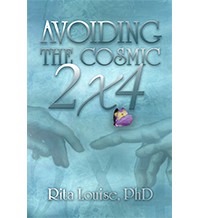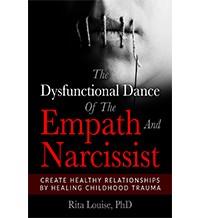A Partner’s Guide For Abuse And Trauma Survivors
If you find that you have fallen in love with an abuse or trauma survivor, understand right up front that healing is possible. Sometimes by understanding what your partner has been through can help you to better support them as they work through their tangled up and confused inner world. There is not anything inherently wrong with your lover that needs fixing, they are just deeply wounded. Many times all they need is a safe place to land, with a pair of loving arms to hold them, when something happens and they get upset.
The Challenges Of Abuse Or Trauma Survivors
Individuals who are abuse or trauma survivors can experience irrational emotional reactions. They may seem depressed, close to tears, or emotionally distant. They may want to blame you for all kinds of wrongdoings or lash out at you. If they appear angry or frustrated with you, more than likely, a hurtful situation from their past has reared its ugly head. It can be challenging to not get upset or feel rejected in these moments, but know that what is going on is not personal nor is it an indicator of their true feelings for you.
The deep-seated trauma they have is not something that you or they can instantaneously fix. They cannot just “let it go”. Thankfully, the distress they are experiencing is temporary. It might take them a few moments to recover, or it might take them several days.
How To Support Someone Who Is An Abuse Or Trauma Survivor
Your partner is used to the harsh treatment of an abuser, be it from a parent or former lover. They are used to being blamed, belittled, humiliated, embarrassed, or have the “you’re broken” card played on them. It is your job, if you decide to accept it, to treat them oppositely.
Love them unconditionally. It is through unconditional love and the safety if offers that the walls they have erected over the years can begin to come down. They built a wall around themselves to protect themselves from the painful feelings the abuse created. They had to be strong and vigilant because no one was there to help. With you in their lives, they may, for the first time have someone there for them, someone completely on their side.
This does not mean that you should roll over and not have boundaries. You have every right to call them out on their anger, frustration, and rage. You do not have the right to be cruel, mean, or abusive. Your partner wants to put his or her trust in you. Please do not betray their trust and be a tyrant too. This will only add another cycle of pain to their already traumatize lives.
What Most Abuse Or Trauma Survivors Need
All most trauma survivors need from you is patience, some of your time and your understanding. At times it can be a rocky road. If you are up to the task here are a few things to consider as you move forward. Doing helpful and supportive things will help your partner recover quicker and bring the person you fell in love with in the first place back. Doing the wrong thing will only make matters worse and may push your partner further away. By working with your significant other, respecting who they are and where they have come from will ultimately deepen and strengthen your relationship.
Be Patient
Do not punish your partner if they are having a flashback or are triggered. Triggers for a trauma survivor are frightening enough. He or she may feel out of control. They may also experience intense guilt for the disturbances they are creating in the relationship. They do not want to hurt you but at the same time often feel powerless to change what is going on inside. You do not need to blame them. They are already blaming themselves enough. Punishing them may only prove to make their trauma worse and their trust in you less.
Find Out What Is Going On Inside
Ask him or her what is going on inside. Many times abuse and trauma survivors are challenged in describing what they are feeling. Their inner world is often turned upside down or as if they are on a giant rollercoaster. Sometimes the best approach is to simply ask them what they need or what would be helpful at that moment. If they cannot articulate what those needs are, perhaps just sitting and “being” with them will help calm the raging storms they are feeling. This simple step will let your loved one know that you care and are trying to be supportive.
Give Them Space Or Time Alone If Needed
There might be times when they need to be alone so that they can process their feelings. This is especially important if your partner is extremely sensitive. Being alone allows empathic individuals to discharge the emotional energy they have accumulated. It helps many find themselves again. If they ask for space, respect it.
Help Them Find Creative Outlets Or Positive Coping Skills
Finding creative outlets can also help to deescalate your partner’s emotional reaction to an emotional trigger and help him or her let off some steam. Go for a walk, meditate together, rake some leaves, put on some music, or just sit and breathe. Perhaps journaling or taking a hot stress relieving bath will help. These positive mindful coping skills will help your lover get back into their body and begin the process of releasing what is bothering them. What works for one person, may not work for someone else. Try to discern what de-escalation activities support your partner best. (Additional ideas and healing modalities can be found in my books The Dysfunctional Dance Of The Empath And Narcissist and Dang! It Was Me All Along?)
Love The Abuse Or Trauma Survivor Without Limits
In the end, just love your partner without limits. Let them know that whenever an inner demon bubbles to the surface that you will not leave them and you will not love them any less. Abuse or trauma survivors, especially when triggered, have lingering doubts about your commitment to them and the love you express. Be unwavering in your belief and love for them, even if at the moment they are not trusting or believing you.
A Quick Note To The Partner Of An Abuse Or Trauma Survivor
It is quite natural for you to feel powerless as you see your loved one curled up in a ball crying. These interactions may leave you feeling anxious or may trigger some of your unhealed wounds. If it is challenging you to support your partner in this way, suggest they seek some outside professional help.
I will warn you that this might trigger your partner. They might take it as a “He thinks I am broken” and send them into a tailspin. Yet, if you feel like you are in over your head, then perhaps in a loving, caring, and supportive way you can have this conversation. Let them know that it is not that you do not love them, but inform them that you are feeling out of your league. If you suggest this from a place of love, then with a bit of luck your partner will be able to hear it without getting upset.
I hope that these suggestions will help the two of you move successfully through times of crisis. It is during these chaotic periods that some of the most profound restoration and renewal for a trauma survivor to occur, that is if you are there to love and support them.
I’m here if you need help with your partner or other loved one.
Taking action is the key to making positive changes in your life. This includes your health. So don’t wait! Take your next step right now and contact Dr. Rita to schedule a private consultation.
Medical Intuitive Reading – Intuitive Counseling – Energy Healing
© Copyright Rita Louise, Inc. – soulhealer.com. All rights reserved.




